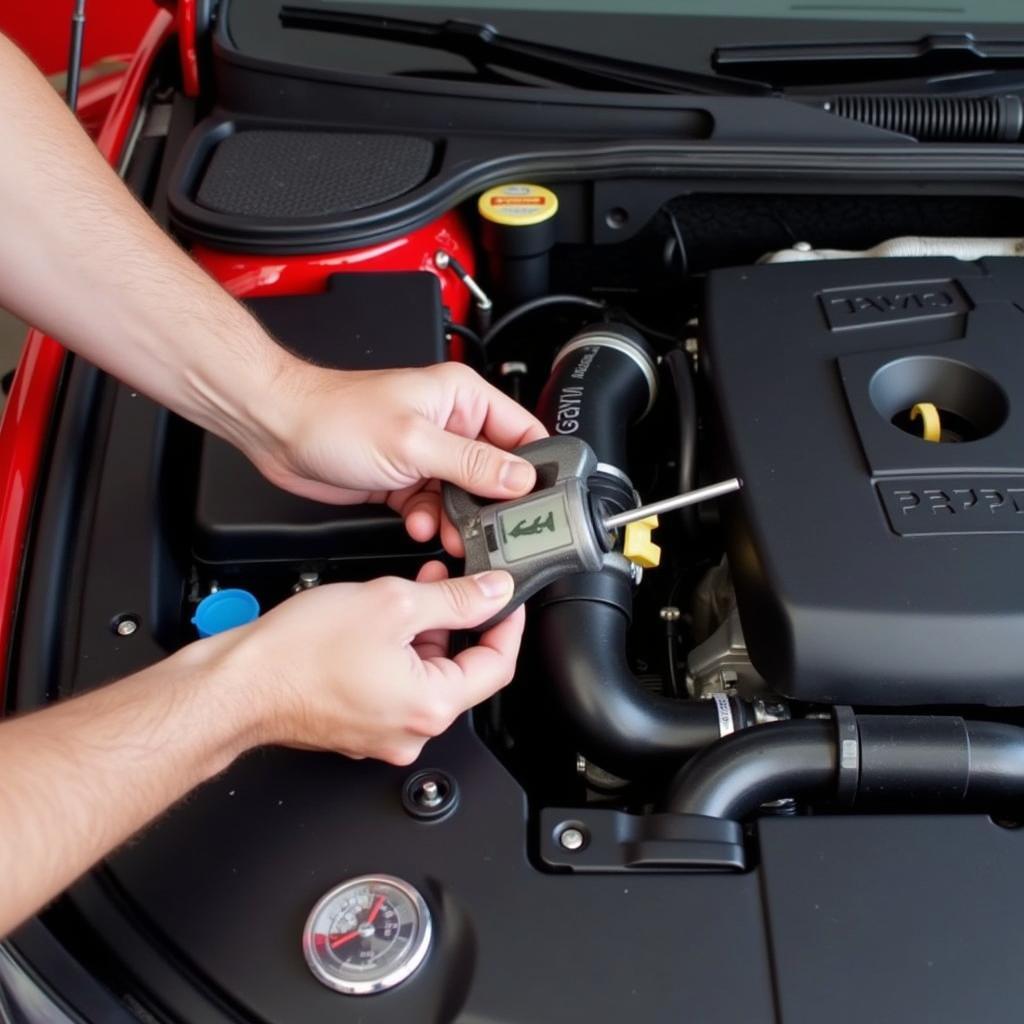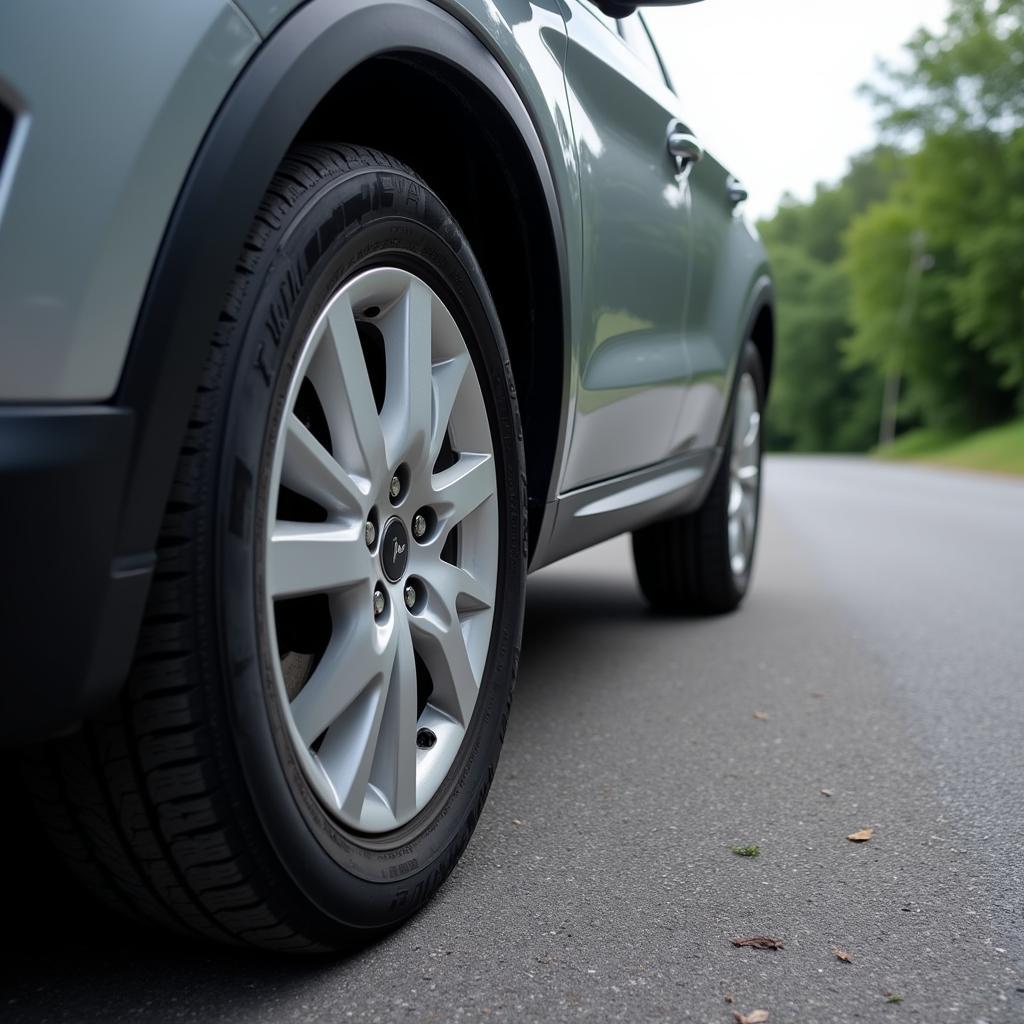Experiencing a “Car Turning Friction Problem Flat” can be unnerving and potentially dangerous. This often manifests as a noticeable resistance when turning the steering wheel, a grinding noise, or even a flat tire. Understanding the root causes and solutions is crucial for maintaining your vehicle’s safety and performance. This article will delve into the common reasons behind this issue and offer practical advice on diagnosis and repair.
Steering systems are complex and rely on many components working together harmoniously. Let’s start by exploring the potential culprits behind that frustrating turning friction. After discussing common causes, we will dive into how you can diagnose these issues. Check out our article on car wheel hub problems for more information on potential hub-related problems.
Common Causes of Car Turning Friction Problems
Low Power Steering Fluid
Perhaps the most common cause is low power steering fluid. This fluid provides the hydraulic pressure necessary for smooth steering operation. Insufficient fluid can lead to increased friction and difficulty turning the wheel, especially at low speeds.
Worn Power Steering Pump
The power steering pump is the heart of the system, responsible for pressurizing the fluid. A failing pump can result in inadequate pressure, causing the very symptoms we’re discussing.
Faulty Power Steering Rack
The power steering rack translates the rotational motion of the steering wheel into the linear motion required to turn the wheels. A worn or damaged rack can create significant friction and make turning a struggle.
Binding Steering Column
Sometimes, the steering column itself can become bound or restricted, either due to internal damage or external factors like debris or rust. This can create a noticeable resistance when turning the wheel.
Diagnosing the Problem
Check the Power Steering Fluid Level
The first and easiest step is to check your power steering fluid level. Low fluid is a simple fix, but ignoring it can lead to more serious problems.
Listen for Unusual Noises
Pay close attention to any unusual noises when turning the steering wheel. A whining sound can indicate a failing power steering pump, while a grinding noise might point to a problem with the steering rack or binding components.
Inspect the Steering Components
Visually inspect the steering components for any signs of damage, leaks, or wear. Look for worn boots, loose connections, or any obvious signs of damage.
Check for Binding in the Steering Column
Try turning the steering wheel with the engine off to check for any binding or resistance in the steering column itself. If it feels unusually stiff or difficult to turn, the problem may lie within the column.
 Mechanic Checking Power Steering Fluid
Mechanic Checking Power Steering Fluid
When to Seek Professional Help
While some of these checks can be performed by car owners, it’s often best to consult a qualified mechanic for a thorough diagnosis and repair. A professional will have the tools and expertise to pinpoint the exact cause of the problem and recommend the appropriate course of action. You can learn more about other car problems by visiting our cars problems page. Also, if your car is vibrating, see our resource on what is the problem when car vibrates.
What if the problem is accompanied by a flat tire?
If you experience a “car turning friction problem flat,” the flat tire could be a symptom of a larger issue, particularly if it occurs while turning. This could suggest damage to the tire, wheel, or suspension components. If this happens, have the vehicle towed to a professional immediately to avoid further damage. For information about potential axle issues, check our article how to know when problem with car axle.
 Car with a Flat Tire While Turning
Car with a Flat Tire While Turning
Expert Insights
John Smith, a certified automotive technician with over 20 years of experience, emphasizes the importance of regular maintenance: “Preventive maintenance is key to avoiding costly repairs down the line. Regularly checking your power steering fluid and having your steering system inspected can prevent many common turning friction problems.”
Another expert, Jane Doe, a mechanical engineer specializing in automotive systems, adds, “Ignoring steering issues can compromise your safety. A properly functioning steering system is crucial for maintaining control of your vehicle.”
Conclusion
A “car turning friction problem flat” can stem from various issues, from low power steering fluid to a damaged steering rack. By understanding the potential causes and following the diagnostic steps outlined above, you can take the necessary steps to ensure a safe and enjoyable driving experience. Don’t hesitate to contact AutoTipPro at +1 (641) 206-8880 or visit our office located at 500 N St Mary’s St, San Antonio, TX 78205, United States for expert advice and assistance with your car turning friction problem flat. We are here to help you get back on the road safely.
If you’re facing similar challenges, consider checking our article on friction of wheel on car problems chegg for further reading.





Leave a Reply